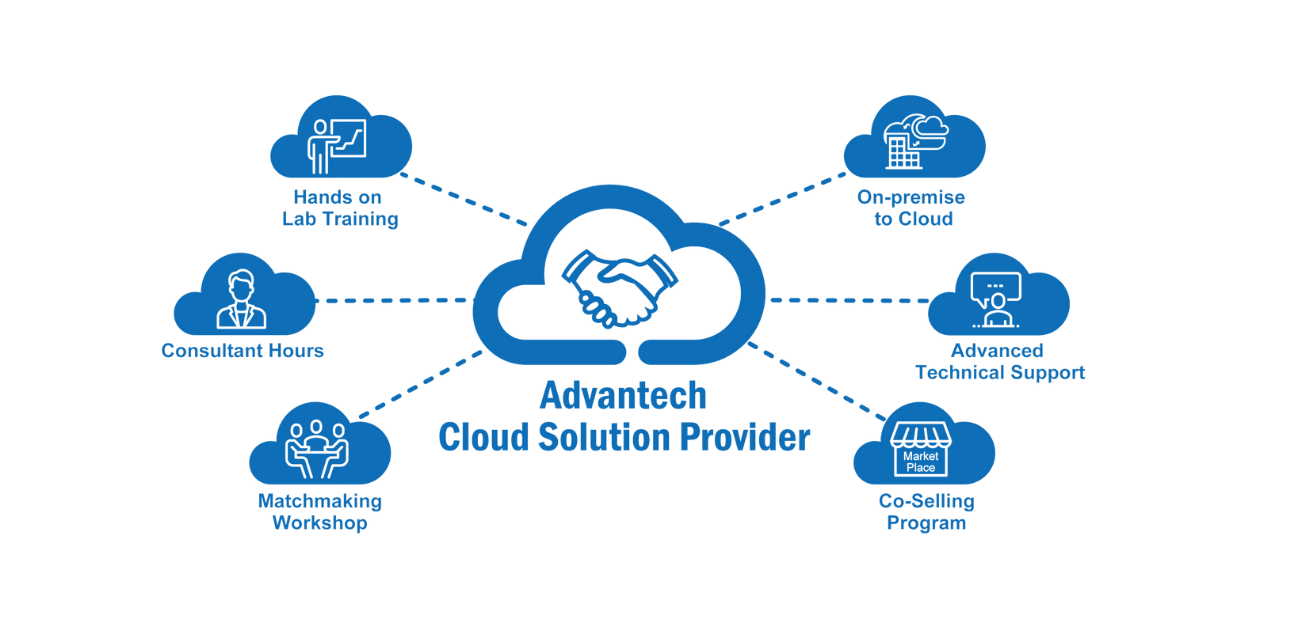Streamline IT Monitoring With Cloud Solutions
Cloud services have actually arised as a viable solution for businesses looking to boost performance, reduce costs, and improve total IT efficiency. How specifically do these cloud services revolutionize standard IT monitoring methods? Let's check out the transformative influence of leveraging cloud solutions on IT procedures and the vital factors to consider for effective implementation.
Benefits of Cloud Provider

Moreover, cloud solutions make it possible for companies to boost their functional effectiveness by enhancing procedures and reducing the moment and sources required for managing IT framework. With cloud solutions, companies can automate routine tasks, such as software application updates and information backups, liberating IT teams to focus on even more strategic initiatives that drive organization value.

Boosted Scalability and Flexibility
Cloud services supply organizations with unrivaled scalability and versatility in handling their IT resources efficiently. Scalability is a critical function of cloud services that allows companies to quickly readjust their IT sources based upon need. With cloud solutions, services can rapidly scale up or down their computer resources, storage space capability, and network bandwidth to satisfy altering demands without the requirement for substantial upfront financial investments in equipment. This versatility enables organizations to adapt to changing workloads, seasonal needs, or unforeseen development without experiencing downtime or performance problems.
Moreover, cloud services use the adaptability for employees to accessibility business data and applications from anywhere, at any moment, and from any kind of device with a web connection. This capacity enhances efficiency and partnership amongst remote groups or employees operating in various areas. Additionally, cloud services offer the versatility to pick from a range of solution models, such as Facilities as a Solution (IaaS), System as a Solution (PaaS), or Software Program as a Solution (SaaS), based on the specific demands of business. The improved scalability and flexibility provided by cloud services encourage organizations to maximize their IT procedures and stay nimble in today's dynamic market environment.

Cost-Effectiveness and Cost Savings
With the capacity to effectively allot resources based on demand, organizations utilizing cloud services can harness substantial cost-effectiveness and recognize significant financial savings in their IT operations. Additionally, cloud services minimize maintenance expenses by moving the obligation of hardware upkeep and software application updates to the service copyright. In general, the cost-effectiveness and here financial savings attained via cloud solutions make it possible for companies to reapportion sources towards advancement and growth campaigns.
Improved Protection and Compliance
Enhancing the general protection position and ensuring governing compliance are paramount considerations for organizations leveraging cloud services in their IT management methods. Cloud provider provide innovative safety measures, such as information file encryption, multi-factor verification, and automated backups, which can reinforce a company's protection structure. These service providers additionally abide by rigid regulative requirements, such as GDPR, HIPAA, and PCI DSS, helping companies satisfy conformity needs better.
Implementing cloud services can improve safety by supplying centralized control over gain access to administration, monitoring, and data defense. This central approach simplifies protection administration and guarantees constant application of security policies throughout the organization. Cloud solutions frequently supply real-time safety updates and patches, decreasing the risk of vulnerabilities and possible violations.
Ideal Practices for Cloud Implementation
Carrying out cloud solutions effectively find here needs a structured approach that incorporates thorough planning and diligent implementation. To ensure a smooth change to the cloud, companies must begin by performing a thorough assessment of their current IT infrastructure and identifying which work appropriate for movement. It is important to establish clear goals and define essential performance indicators (KPIs) to determine the success of the cloud implementation.
One of the most effective techniques for cloud implementation is to carefully select a cloud company that lines up with the organization's needs in regards to safety and security, cost-effectiveness, scalability, and compliance. Furthermore, developing a comprehensive migration plan that lays out the actions included, timelines, and responsibilities is vital for an effective execution.
Regularly optimizing and checking cloud resources to make certain efficient performance and expense administration is one more essential element of cloud execution finest practices. Continuous evaluation of the cloud environment and staying notified about updates and brand-new attributes used by the cloud supplier can additionally boost the company's cloud approach. By complying with these best methods, organizations can enhance their IT monitoring and make the most of the benefits of cloud services.
Final Thought
Finally, leveraging cloud services for IT administration supplies many benefits, consisting of boosted scalability, cost-effectiveness, enhanced safety, and compliance. By complying with ideal methods for cloud execution, companies can simplify their IT operations, automate regular tasks, and enhance source appropriation. This structured approach enables IT groups to concentrate on strategic efforts and technology, ultimately delivering value to the company. Generally, cloud services enhance operational performance and dexterity in managing IT infrastructure.
In addition, cloud services supply the flexibility to choose from a range of service models, such as Facilities as a Solution (IaaS), System as a Service (PaaS), or Software Program as a Solution (SaaS), based moved here on the particular requirements of the service. Furthermore, cloud services minimize maintenance expenses by shifting the duty of equipment upkeep and software application updates to the service supplier.Enhancing the overall safety pose and making certain regulative compliance are paramount factors to consider for businesses leveraging cloud solutions in their IT management strategies.Routinely optimizing and checking cloud resources to guarantee effective efficiency and price monitoring is an additional crucial element of cloud execution best practices. Continual evaluation of the cloud setting and staying educated concerning updates and brand-new attributes used by the cloud service provider can additionally boost the organization's cloud technique.